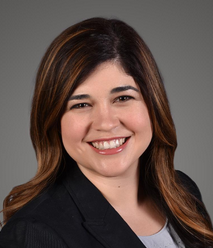AMARILLO, TX – Hospitals, physicians and pharmacists serve patients from all walks of life: young and healthy to older and not so healthy. On the other hand, DME suppliers primarily serve the elderly. None of us gets a free pass from getting old…and as we age our bodies will eventually break down. When this occurs, we will go to a DME supplier for products and service that will keep us mobile and independent.
 Because DME suppliers primarily serve the elderly, they are largely dependent on Medicare for their revenue. Unfortunately, dealing with CMS can sometimes be akin to falling into a black hole. When a DME supplier needs to ask CMS questions or otherwise gather information from CMS, the supplier often does not know where to start.
Because DME suppliers primarily serve the elderly, they are largely dependent on Medicare for their revenue. Unfortunately, dealing with CMS can sometimes be akin to falling into a black hole. When a DME supplier needs to ask CMS questions or otherwise gather information from CMS, the supplier often does not know where to start.
Although it is an imperfect process, one way for DME suppliers to obtain information from CMS is through a Freedom of Information Act (“FOIA”) request.
SUBMITTING A REQUEST
To file a FOIA request with CMS an individual must send the request by email to [email protected] or by mail to:
CMS FOIA Officer
Centers for Medicare & Medicaid Services
Mailstop N2-20-16
7500 Security Boulevard
Baltimore, MD 21244
The request can also be sent to a specific CMS Regional Office. The contact information is: https://www.cms.gov/center/freedom-of-information-act/regional-contacts.html. To help expedite handling, the request and envelope should be marked “Freedom of Information Act Request.” Sample FOIA letters are available on the CMS FOIA request website.
If requesting medical records for someone other than the requestor, then a completed Medicare Authorization to Disclose Personal Health Information form must also be submitted. This form is available at:
https://www.cms.gov/Regulations-and Guidance/Legislation/FOIA/Downloads/AuthorizationForm.pdf.
 If requesting medical records for a deceased person, the requestor must either: (i) include a copy of the document authenticating the requestor’s authority as the executor, administrator, or other person authorized to act upon behalf of the person for whom records are sought (examples include probate court documents or orders of administration and/or executorship); or (ii) if the requestor is not the executor of the estate, the requestor must include a signed release authorization from the legal representative of the deceased, as well as the document authenticating the representative’s authority (examples include probate court documents or orders of administration and/or executorship).
If requesting medical records for a deceased person, the requestor must either: (i) include a copy of the document authenticating the requestor’s authority as the executor, administrator, or other person authorized to act upon behalf of the person for whom records are sought (examples include probate court documents or orders of administration and/or executorship); or (ii) if the requestor is not the executor of the estate, the requestor must include a signed release authorization from the legal representative of the deceased, as well as the document authenticating the representative’s authority (examples include probate court documents or orders of administration and/or executorship).
Once a FOIA request is received, CMS will send an acknowledgement letter with a control number and Personal Identification Number (PIN). The requestor can check the status of the request at https://www.cms.gov/apps/FOIA/. The requestor will need to enter in the Control Number and PIN that was provided.
Format
Individuals may request records in a specific format. However, some records may not be available in the requested format. CMS is obligated to provide records in a requested format only if it can do so with a reasonable amount of effort.
FEES
Fees are determined by the type of requestor:
- Noncommercial requestors are charged only for search time and the cost of making copies. They will not be charged for the first two hours of search time or for the first 100 pages of document copying.
- Commercial use requestors are charged for any search time, document review, and duplication.
- News media, educational, or scientific requestors are charged for duplication only, after the first 100 pages.
The hourly fees usually range from about $23 to $83 per hour, depending on the salary levels of the personnel needed for the search. Copying fees is $0.10 per page. CMS will not charge if the total processing is less than $25.
A waiver is available if the requestor can show that the records, when disclosed, will contribute significantly to the public’s understanding of the operations or activities of the government and that the request is not predominantly commercial in nature.
Documents that may be requested/not requested
An individual may request any federal agency record except for those records (or portions of those records) that are protected from disclosure by any of the nine exemptions or three exclusions set by law. The nine exemptions are:
- classified national defense and foreign relations information,
- internal agency rules and practices,
- information that is prohibited from disclosure by another law,
- trade secrets and other confidential business information,
- inter-agency or intra-agency communications that are protected by legal privileges,
- information involving matters of personal privacy,
- certain information compiled for law enforcement purposes,
- information relating to the supervision of financial institutions, and
- geological information on wells.
The three exclusions are rarely used but pertain to certain sensitive law enforcement and national security matters.
If CMS denies a FOIA request, an administrative appeal process is available through the CMS Principal Deputy Administrator. If CMS denies the appeal then a FOIA lawsuit may be filed in the appropriate U.S. District Court.
DEADLINE FOR CMS RESPONSE
CMS must make an initial determination (a substantive response) regarding the disclosure of the requested records within 20 working days after receipt of the request. CMS may extend this deadline by 10 days, but only in “unusual circumstances.” Unusual circumstances include:
- the need to search for and collect the requested records from field facilities or other establishments that are separate from the office processing the request;
- search for, collect, and review a voluminous amount of records which are responsive to a single request; or
- consult with another agency which has a substantial interest in the disclosure determination of the request, or among two or more components of the agency having a substantial subject matter interest in the request.
If an extension is sought, CMS is will provide written notice to the requestor that includes the requested extension of time. The requestor may take action in Federal District Court if the specific time limits are not met.
Jeffrey S. Baird, JD, is chairman of the Health Care Group at Brown & Fortunato, PC, a law firm based in Amarillo, Texas. He represents pharmacies, infusion companies, HME companies and other health care providers throughout the United States. Baird is Board Certified in Health Law by the Texas Board of Legal Specialization, and can be reached at (806) 345-6320 or [email protected].
Colleen T. Byrom, JD, is an attorney with the Health Care Group at Brown & Fortunato, PC, a law firm based in Amarillo, Texas. She represents pharmacies, infusion companies, HME companies and other health care providers throughout the United States. Byrom can be reached at (806) 345-6311 or [email protected].

